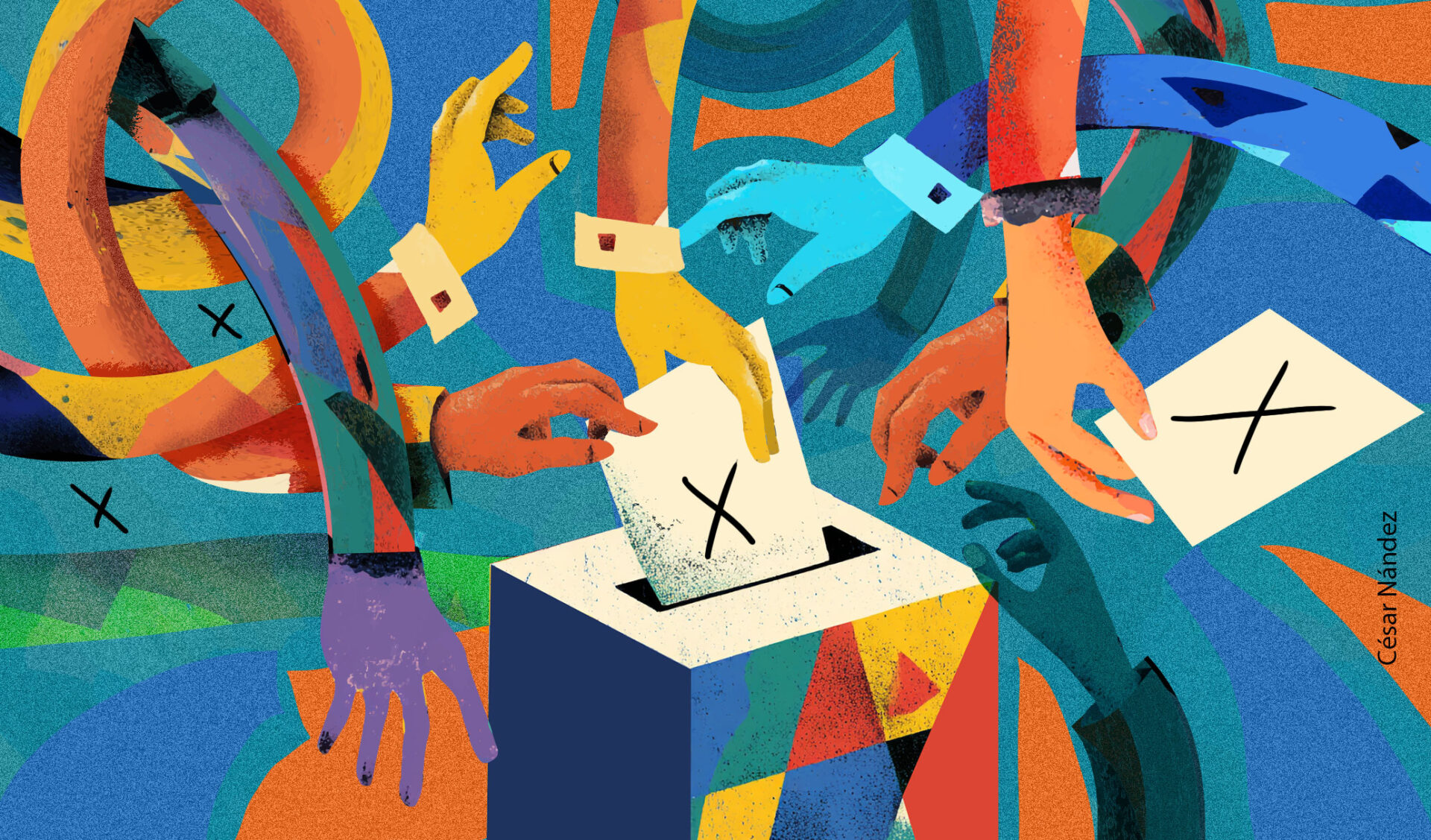The current post-democratic scenario in which the world is immersed shows a global weakening in the average quality of democracy, even in consolidated regimes, reaching alarming levels of deterioration, alongside the rise of autocracies. Among the many aspects of different nature, two stand out for their relevance and the perplexity they generate: the weight of demography and the growing complexity of political issues. These are elements with clear feedback dynamics that have been on the table for a long time but have not received the attention they deserve.
In 1960, three billion people populated the Earth. Sixty-five years later, that number has multiplied by 2.7, surpassing eight billion, with 55% living in cities. In Latin America’s three most populous countries, the demographic evolution has been dramatic. Brazil’s population rose from 72.2 million to 212 million (threefold), Mexico’s from 38.2 million to 131 million (3.4 times), and Colombia’s from 16.5 million to 52.9 million (3.2 times). Even in the region’s less populated countries, growth has been significant. Costa Rica jumped from 1.3 million to 5.1 million (3.9 times), Panama from 1.1 million to 4.5 million (fourfold), while Uruguay grew from 2.5 million to 3.4 million (1.4 times), making it the least dynamic country demographically in the region.
It is now common knowledge that we live in the Anthropocene era, driven by the significant impact of human activity on the planet. However, over the two-thirds of a century that have passed, institutional changes designed to confront demographic growth and adjust it to functional realities have not evolved at a similar pace, with evident consequences for the public agenda.
For example, political representation has barely changed, just as decentralization processes have not always matched social and cultural transformations, environmental tensions, demands for gender parity, or respect for diversity. A similar gap exists in public policy design and implementation, where citizen participation remains limited. This is evident in areas affecting daily life: urban water supply, waste management, public transportation, and citizen security—all issues that have grown enormously in just a few decades.
Historically, cities were central to Italy’s medieval political experience, where magistrates were elected, citizens deliberated, decisions were collegial, and elites were controlled. These were key elements in the development of political theory, later applied to the nation-state model, and a foundation of pluralist democracy.
Today, however, cities have transformed into spaces where residents have little say, despite democratizing processes that seek self-government within still-centralized structures. Daily life in these urban spaces often means few green areas, long commutes from peripheral neighborhoods, and control by informal or even criminal actors. In a very different dimension, pets now outnumber humans by an average factor of five. All of this has consequences for people’s attitudes and public policies, further reshaped by the digital revolution.
The growing complexity of politics
The second aspect concerns the complexity of issues on the public agenda, whose widespread socialization would seemingly require an informed and engaged citizenry. Yet, in reality, societies are increasingly fragmented, atomized, and lacking solidarity. Pension systems under inverted demographic pyramids, health and education policy, care work disputes between public and private actors, taxation, international relations, hyperconsumption culture, and drug legalization are just a handful of issues dominating political debates.
Theoretically, voters should behave rationally, acting as proactive and informed individuals. But the reality is far from this ideal. From the mid-20th century until recently, political parties, unions, and business associations acted as intermediaries and cognitive shortcuts, compensating for the public’s lack of specialized knowledge. Citizens only needed a degree of trust in these actors, built through identity mechanisms that guaranteed loyalty. But this has largely vanished with the rise of polarization strategies in political competition—just as, epistemologically, social class frameworks lost ground when Marxism gave way to neoliberalism, which imposed a new jargon around merit, individualism, and transversal categories in the social sciences.
Current forms of communication and information create a radically different landscape than at the beginning of this century, when no social media existed and the digital world had not yet grown exponentially. In 2000, only 6.7% of the global population used the Internet, compared to 67.4% today. Furthermore, the COVID-19 pandemic polarized voters and eroded institutional trust. This has profoundly altered cognitive frameworks, enabling the dominance of disinformation and plunging people into an arena of perplexity and uncertainty—making it ever harder to grasp the complexity of what is happening.
*Machine translation, proofread by Ricardo Aceves.













